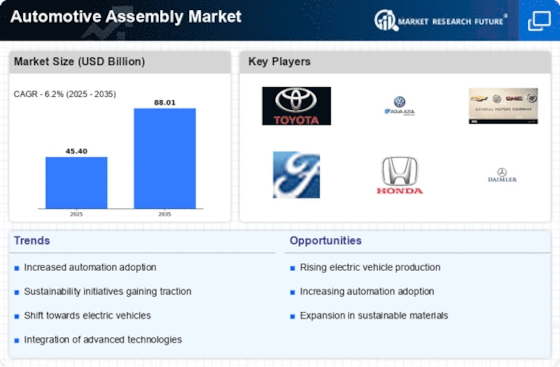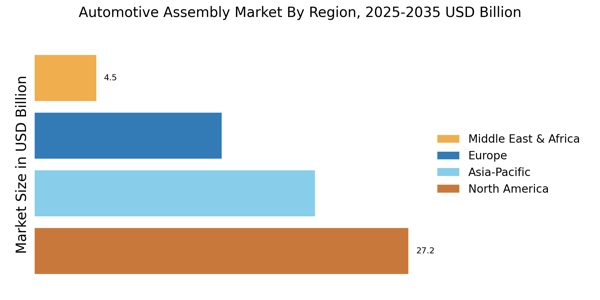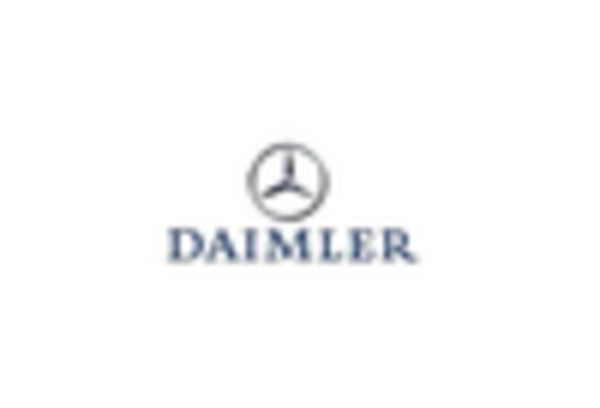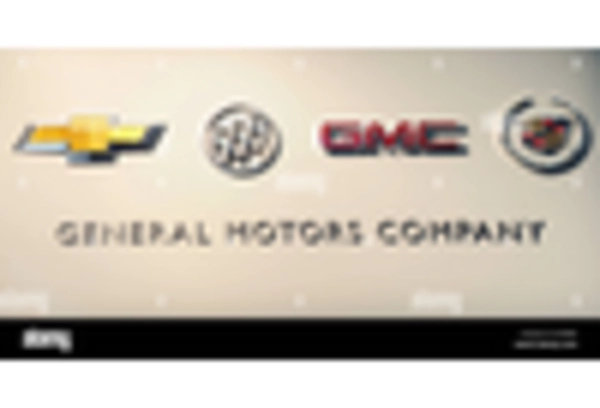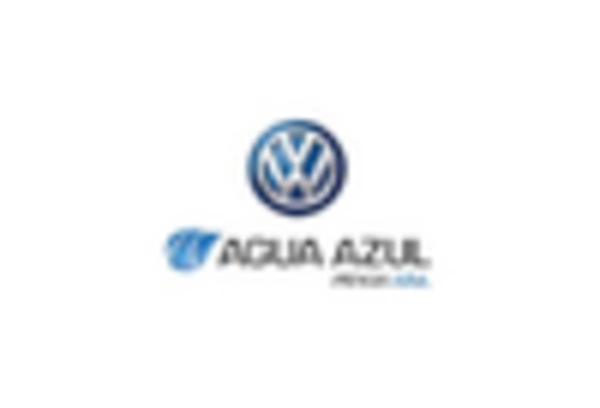Global Supply Chain Resilience
The Automotive Assembly Market is increasingly focused on building resilient supply chains in response to past disruptions. Manufacturers are diversifying their supplier networks and investing in local sourcing to mitigate risks associated with global supply chain dependencies. This shift is particularly relevant as the industry aims to enhance flexibility and responsiveness to market changes. In 2025, it is projected that companies prioritizing supply chain resilience will experience a 15% reduction in operational costs. By fostering closer relationships with suppliers and adopting just-in-time inventory practices, the Automotive Assembly Market can better navigate uncertainties and maintain production continuity.
Rising Demand for Electric Vehicles
The Automotive Assembly Market is experiencing a notable shift towards electric vehicles (EVs), driven by increasing consumer demand for sustainable transportation solutions. As governments implement stricter emissions regulations, manufacturers are compelled to adapt their assembly processes to accommodate EV production. In 2025, it is estimated that EV sales will account for approximately 30% of total vehicle sales, necessitating significant investments in assembly line modifications and new technologies. This transition not only influences the types of components used but also requires a reevaluation of supply chain logistics. Consequently, the Automotive Assembly Market is likely to see a surge in demand for specialized assembly techniques and equipment tailored for electric vehicle production.
Consumer Preferences for Customization
The Automotive Assembly Market is witnessing a growing trend towards vehicle customization, as consumers increasingly seek personalized features and designs. This shift is prompting manufacturers to adapt their assembly processes to accommodate a wider variety of options and configurations. In 2025, it is anticipated that nearly 40% of consumers will prioritize customization when purchasing a vehicle, compelling manufacturers to implement flexible assembly lines capable of handling diverse product variations. This trend not only enhances customer satisfaction but also drives innovation in assembly techniques, as companies strive to balance efficiency with the ability to offer tailored solutions. Consequently, the Automotive Assembly Market is likely to evolve to meet these changing consumer expectations.
Sustainability and Eco-Friendly Practices
Sustainability is becoming a cornerstone of the Automotive Assembly Market, as manufacturers increasingly adopt eco-friendly practices throughout their production processes. This includes the use of renewable energy sources, waste reduction initiatives, and sustainable materials in vehicle assembly. In 2025, it is projected that companies implementing sustainable practices will see a 10% increase in consumer preference, as environmentally conscious consumers prioritize brands that align with their values. Additionally, regulatory pressures are pushing manufacturers to comply with environmental standards, further driving the adoption of green technologies. As a result, the Automotive Assembly Market is likely to experience a transformation towards more sustainable production methods, enhancing its appeal to a broader audience.
Technological Advancements in Manufacturing
Technological innovations are reshaping the Automotive Assembly Market, with advancements in robotics, artificial intelligence, and machine learning playing pivotal roles. These technologies enhance efficiency and precision in assembly processes, reducing production times and costs. For instance, the integration of AI-driven quality control systems can lead to a reduction in defects by up to 20%, thereby improving overall product quality. Furthermore, the adoption of smart manufacturing practices allows for real-time monitoring and data analysis, enabling manufacturers to optimize their operations. As these technologies continue to evolve, the Automotive Assembly Market is expected to witness increased competitiveness and productivity, positioning companies to better meet consumer demands.


